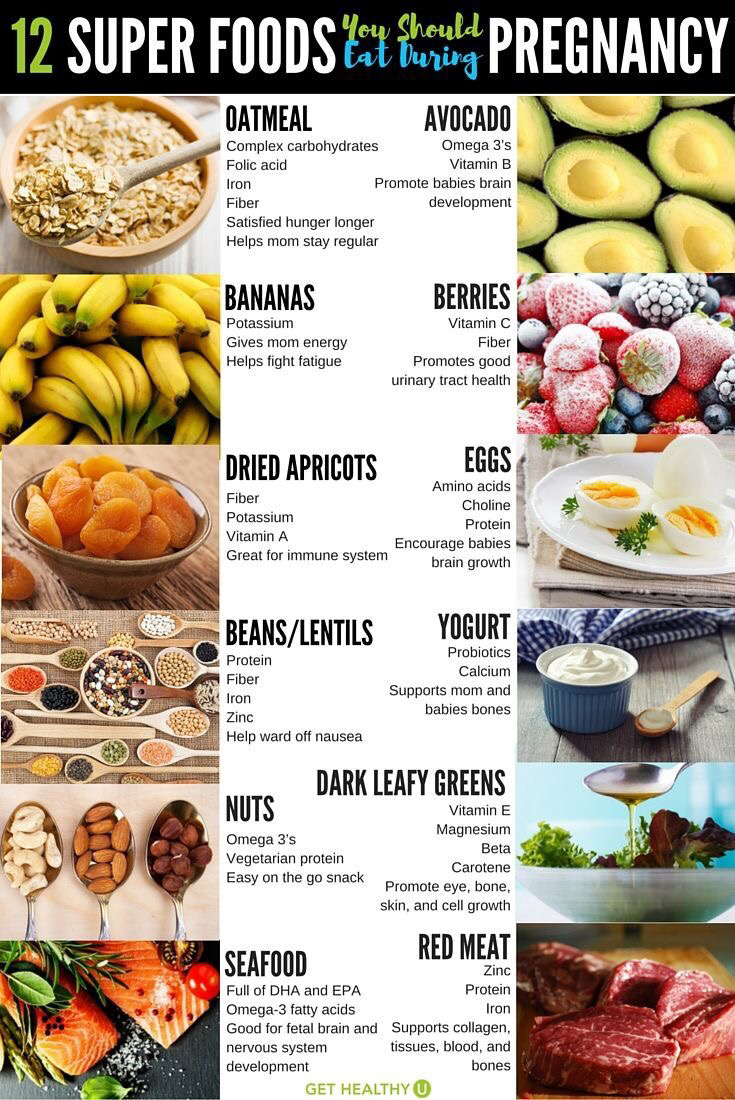Is It Normal to Lose Weight While Pregnant? A Comprehensive Guide To Understanding Weight Fluctuations During Pregnancy

Is it normal to lose weight while pregnant? This question often sparks anxiety and confusion, especially when the expectation surrounding pregnancy is weight gain. While it’s true that the majority of women will experience weight gain during pregnancy, some may experience weight loss, particularly during the early stages. This fluctuation, while seemingly concerning, can often be a normal physiological response to the hormonal changes and bodily shifts taking place during pregnancy. However, sustained weight loss throughout pregnancy can signal a potential problem and demands careful attention.
The Complexities of Weight Loss During Pregnancy
Understanding the potential causes of weight loss during pregnancy can help expectant mothers navigate this experience with informed awareness. Weight loss during pregnancy can be triggered by a variety of factors, ranging from hormonal changes to dietary challenges. While some instances of weight loss might be temporary and harmless, it’s essential to be aware of the potential risks and seek guidance from a healthcare professional when necessary.
The Role of Morning Sickness

One of the most common culprits behind early pregnancy weight loss is morning sickness. This unwelcome symptom often manifests as nausea and vomiting, frequently occurring in the first trimester. While the term “morning sickness” might suggest it only happens in the morning, it can affect women at any hour of the day.
This relentless nausea can lead to decreased appetite and difficulties maintaining food intake, ultimately contributing to weight loss. While morning sickness is a common physiological response to the rapid hormonal shifts in the early stages of pregnancy, it can be incredibly distressing for the expectant mother.
Imagine a pregnant woman, Sarah, in her first trimester. She wakes up to intense nausea and struggles to keep down anything she eats. Her world now revolves around finding ways to keep her stomach settled. This constant battle against nausea not only affects her physical well-being but also alters her emotional state. Sarah feels overwhelmed by this persistent symptom, fearing it might hinder her ability to nurture her growing baby.
Every time she attempts to eat, the feeling of nausea returns, discouraging her from consuming enough food to meet her body’s needs. This cycle of nausea and limited food intake can lead to weight loss, leaving Sarah feeling anxious and uncertain. It’s crucial to remember that morning sickness, even if challenging, is a common occurrence that often subsides as the pregnancy progresses. The key is to find strategies to alleviate the discomfort and support the body through this initial phase.
Is It Normal to Lose Weight While Pregnant – The Impact of Hormonal Changes
Beyond morning sickness, hormonal changes play a crucial role in shaping a woman’s body during pregnancy. These shifts can trigger various physiological responses, including an altered metabolic rate. It’s not uncommon for pregnant women to experience a faster metabolism, which increases the body’s energy expenditure leading to weight loss, especially if dietary modifications aren’t implemented to compensate for the increased caloric needs.
The body is constantly adjusting to the demands of pregnancy, and these fluctuations in metabolism can influence weight dynamics.
Imagine another expectant mother, Lisa, who’s experiencing changes in her energy levels and appetite. Despite eating a healthy diet, she finds herself feeling more energetic than usual. This increase in energy level can lead to increased activity, promoting weight loss without conscious effort. Lisa’s body is responding to the hormonal shifts by revving up its metabolic processes, allowing for greater energy expenditure.
This natural adjustment can be a source of confusion for Lisa as she might wonder if her weight loss is a sign of something wrong. It’s essential to understand that these hormonal fluctuations are normal during pregnancy and can temporarily influence weight. Maintaining communication with her doctor allows Lisa to receive tailored guidance and address any anxieties she might have about her weight fluctuations.
The Role of Psychological Influences
Psychological factors can also play a significant role in weight loss during pregnancy. Factors like stress and anxiety can impact eating habits and lead to weight loss. Pregnancy is a period of significant change and adjustment, often accompanied by heightened emotions and anxieties. This emotional overload can affect a pregnant woman’s appetite and food choices. It’s also important to acknowledge the societal pressures surrounding body image and weight management, which can further add to the anxieties and pressures surrounding weight during pregnancy.
Imagine a woman, Jessica, navigating the early stages of pregnancy while grappling with a challenging work environment. The stress of juggling her work responsibilities with the anxieties of pregnancy takes a toll on her emotional well-being. Jessica might feel overwhelmed and find it difficult to focus on her own needs, including her nutritional intake. Stress triggers the release of cortisol, a hormone known to suppress appetite.
As Jessica struggles to manage the weight of her responsibilities, both at work and with the coming arrival of her child, her food intake declines, leading to weight loss. This scenario highlights the intricate interplay of psychological and physiological factors during pregnancy. It’s crucial to prioritize mental and emotional well-being during this time. Seeking support from loved ones and engaging in relaxation techniques like mindfulness or yoga can help manage stress and maintain a stable emotional state.
Navigating the Risks of Weight Loss During Pregnancy

Sustained weight loss poses various risks to both mother and baby, emphasizing the importance of prioritizing overall well-being during pregnancy. Understanding the potential complications and addressing them proactively can contribute to a healthier pregnancy experience. It’s critical to strike a balance between promoting healthy eating habits and avoiding restrictive diets, particularly during pregnancy.
The Impact on Nutritional Needs

A primary concern with weight loss during pregnancy is the risk of nutritional deficiencies. The growing fetus requires a constant supply of essential nutrients, particularly vitamins and minerals like folic acid, iron, and calcium. These nutrients are vital for supporting various aspects of fetal development, from brain growth to bone formation. A mother experiencing weight loss might also struggle to meet these crucial nutritional requirements, potentially impacting the health and development of her child.
Let’s imagine two expectant mothers, both entering the second trimester. One, Michelle, has been experiencing weight loss. Even though she’s trying to consume nutrient-dense foods, she struggles to meet her calorie requirements due to persistent morning sickness. On the other hand, Emily has maintained a steady weight gain.
Emily’s body is receiving the necessary nutrients to support her growing fetus. However, Michelle is missing out on crucial components that are vital for both her health and the well-being of her baby. This scenario highlights the importance of ensuring adequate nutrient intake during pregnancy, especially when experiencing weight loss. Consulting a registered dietician or other healthcare professional can offer tailored guidance and strategies to meet dietary needs while prioritizing both mother and baby’s health.
Potential Complications for the Fetus

Beyond the nutritional needs of the mother, weight loss can also lead to complications in fetal development. Inadequate nutrition can lead to slower fetal growth, contributing to low birth weight. This can further increase the risk of various health issues for the newborn, including respiratory difficulties, developmental delays, and increased vulnerability to infections. In some cases, severe weight loss during pregnancy can trigger premature birth. This can also lead to a range of potential complications for the baby, as their organs might not be fully developed and require additional care after birth.
Imagine a woman, Maria, who is experiencing unexpected weight loss in the third trimester of her pregnancy. Despite her best efforts to maintain a healthy diet, Maria’s body struggles to absorb nutrients efficiently. As her weight continues to drop, her baby’s growth slows down, leading to a lower birth weight. Subsequently, Maria delivers her baby prematurely, which requires extended hospitalization for the newborn.
This scenario emphasizes the vital role of maintaining a stable weight throughout pregnancy. It underscores the need for prompt medical attention when encountering weight loss and for working closely with a healthcare provider to address these concerns and ensure the well-being of both mother and baby.
Psychological and Emotional Implications

The psychological aspect of weight loss during pregnancy shouldn’t be underestimated. Societal pressures surrounding body image and weight management can exacerbate the anxieties surrounding weight loss. This added pressure can create a cyclical impact, where stress and anxiety further influence eating habits and potentially exacerbate weight loss. It’s essential to have open communication with a healthcare professional and a supportive network of loved ones to address these emotions and navigate the challenges of pregnancy with clarity and compassion.
Imagine a woman, Olivia, who’s experiencing weight loss in the second trimester of her pregnancy. While she’s trying to stay positive, Olivia feels intense pressure to manage her weight and maintain a certain body image during pregnancy.
Olivia’s anxieties become amplified by the societal expectations placed upon mothers-to-be. She feels pressured by those around her to control her weight gain and constantly worries about her weight influencing her baby’s development. This emotional burden can take a toll on her well-being, impacting her ability to fully embrace the joy of pregnancy. Olivia needs to prioritize her mental health and seek support to navigate her emotional well-being while maintaining a healthy pregnancy journey.
Understanding Individual Perspectives and Unique Needs

Weight loss during pregnancy is a complex issue with varying causes and implications depending on individual factors. Acknowledging the uniqueness of each pregnancy journey and tailoring strategies to each woman’s specific needs promotes healthier outcomes. It’s crucial to personalize interventions and address specific situations rather than adopting a one-size-fits-all approach.
The Impact of Pre-Pregnancy Weight Status

A pregnant woman’s weight prior to conception can significantly impact her experience with weight loss during pregnancy. A woman who was already overweight before becoming pregnant might have a different approach to weight management compared to someone who started pregnancy at a healthy weight. For instance, women starting pregnancy overweight may need to focus on managing weight gain rather than losing weight, emphasizing moderation and personalized guidance.
Imagine two expectant mothers, both in their early twenties: Emily is overweight while Sarah has a healthy weight. As they enter their second trimester, both encounter morning sickness and experience a temporary weight loss. While staying consistently hydrated and following their healthcare providers’ advice, both struggle with managing their weight fluctuations due to the impact of morning sickness. Their needs differ in how they navigate this challenge.
While Emily focuses on strategically managing her weight gain to mitigate potential risks associated with overweight pregnancy, Sarah concentrates on maintaining a healthy weight while ensuring she’s meeting her required nutrient intake through a balanced diet. This scenario highlights the importance of individualizing weight management strategies based on pre-pregnancy weight and collaborating with healthcare professionals to tailor a plan that aligns with individual needs.
The Importance of Tailored Nutritional Guidance
It’s not uncommon for women to experience weight fluctuations at various stages of pregnancy due to factors like hormonal changes, dietary preferences, and lifestyle choices. While some women may naturally experience weight loss in the early stages of pregnancy, it’s essential to acknowledge the potential risks and proactively address them. Working with a registered dietician or a healthcare provider can provide tailored nutritional guidance, helping each individual manage her weight while meeting the essential nutrient requirements for both her and her developing fetus.
Imagine two women in their late twenties, Alice and Olivia, both entering the final trimester of their pregnancy. Alice, who previously struggled with an eating disorder, is prone to restrictive eating patterns and has been experiencing substantial weight loss. Olivia, on the other hand, has been diligently following a nutrition plan recommended by her healthcare provider and has maintained a healthy weight gain throughout her pregnancy.
This scenario underscores the vital role of personalized nutritional guidance during pregnancy. Alice needs more support in developing a consistent and healthy eating plan to address her restrictive eating patterns and promote weight stability. Olivia benefits from her existing nutrition plan, which allows her to maintain a healthy weight while meeting her and the baby’s nutrient requirements. Both women demonstrate the importance of personalized nutritional guidance during pregnancy, with each needing a different approach to address their specific needs and ensure a healthy pregnancy journey.
Conclusion

Navigating weight loss during pregnancy requires a multifaceted approach that goes beyond a focus on numbers. It involves understanding the potential causes, addressing the risks, seeking appropriate support, and advocating for a personalized strategy. Maintaining open communication with your healthcare provider and prioritizing overall well-being through balanced nutrition and emotional support are crucial aspects of this journey.
Remember, each pregnancy journey is unique, and weight fluctuations are not necessarily a cause for alarm. By understanding the complexities of weight loss during pregnancy and prioritizing a healthy lifestyle, both mother and child can experience a safe and fulfilling pregnancy experience.






